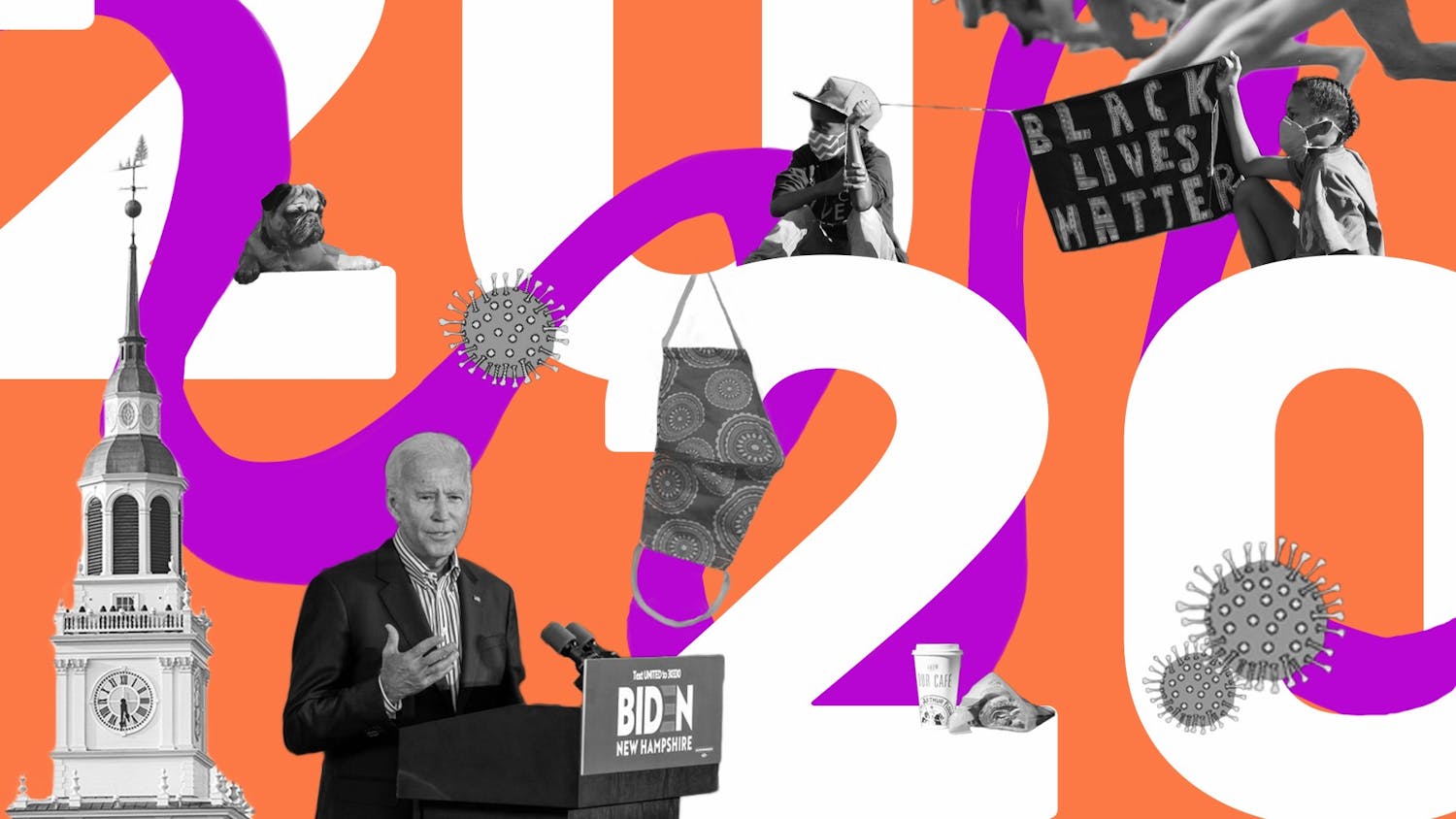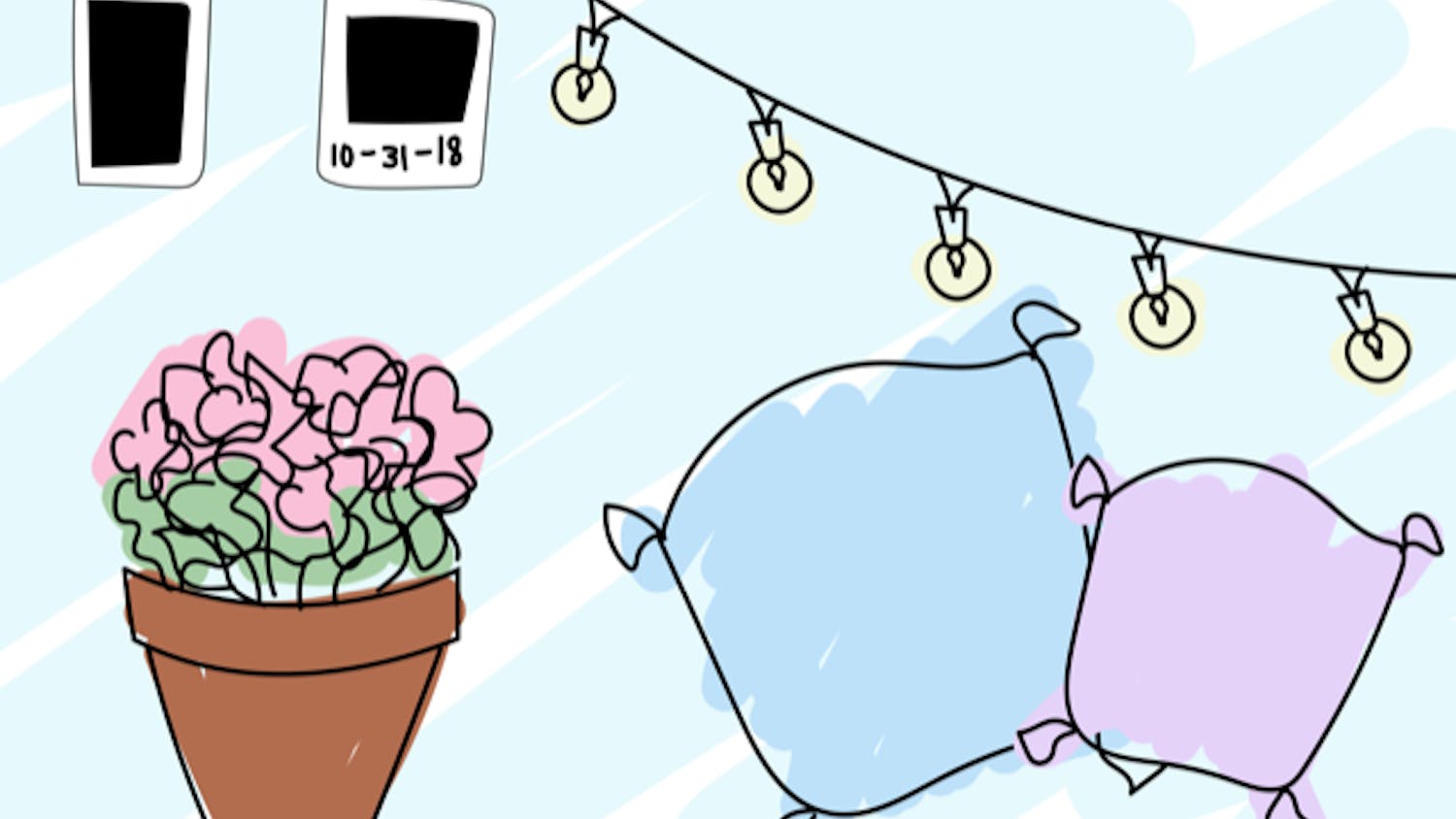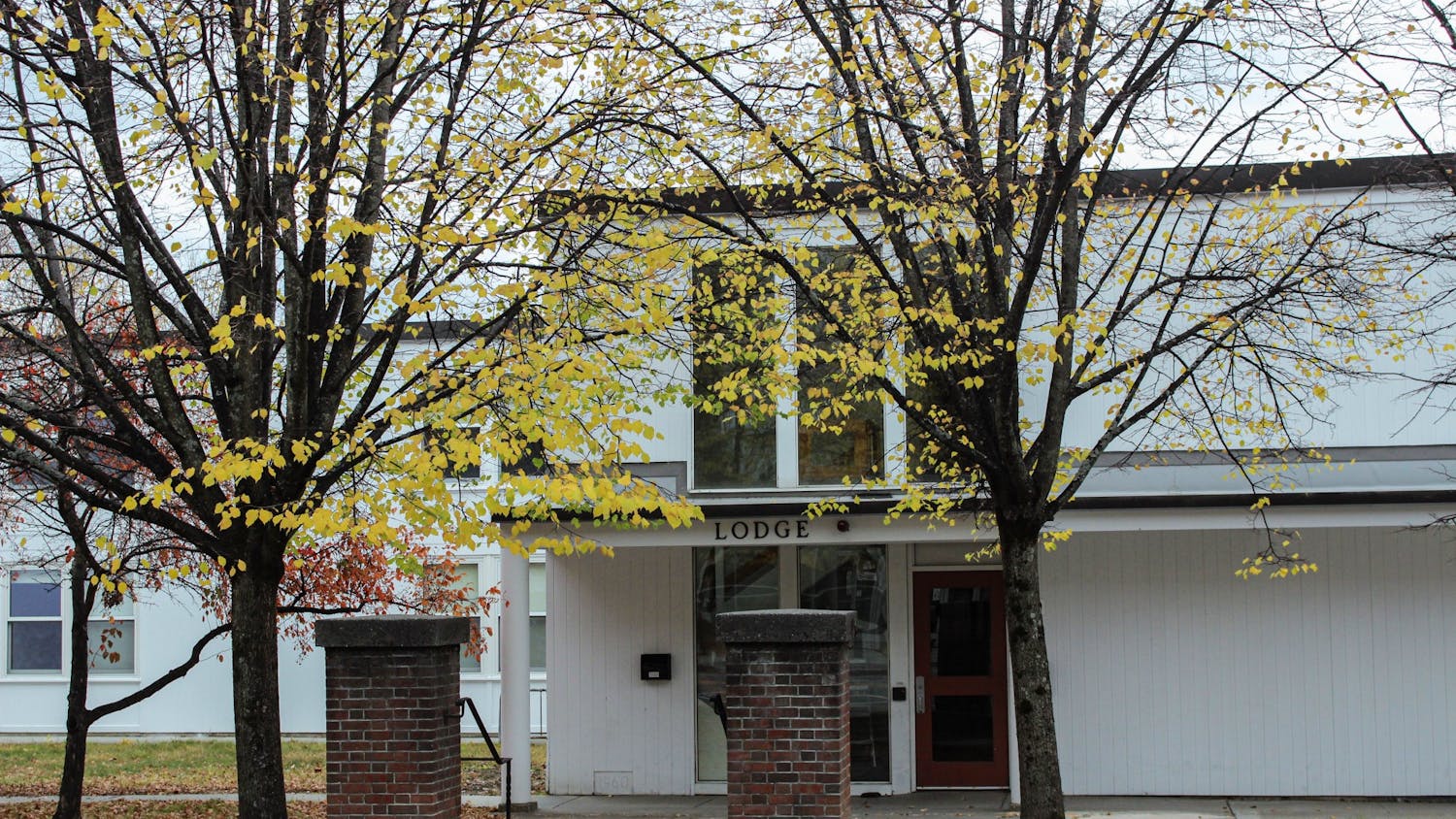This column is featured in the 2021 Winter Carnival special issue.
In some ways, Dartmouth has adapted miraculously well to the pandemic. Classes and clubs have switched to Zoom, half the student body has been brought back to campus (albeit under strict guidelines) and faculty mostly work from home. But unlike most of the Dartmouth community, ’24s have not seen these measures as alterations to the typical Dartmouth experience. It is the only Dartmouth we have ever known. The College must confront this challenge and make elements of the traditional Dartmouth experience accessible to ’24s as soon as it is safe to do so.
Dreaming of college as a kid, I always imagined walking across campus to classes held in beautiful brick buildings, studying in some nook of the library on a Tuesday night, coffee in hand, and having long philosophical discussions at night with friends over Catan and peppermint tea. I pictured late nights and early mornings, rushing to class and grabbing quick meals from the dining hall, waving at familiar faces as I went about my day, maybe participating in a few traditions or even starting my own. It was supposed to be the epitome of freedom, growth and learning.
Instead, I came to campus for the first time only days before the first day of class. I took my COVID-19 test, heaved my luggage up four flights of stairs by myself and quarantined in my room for two weeks, alone. Dimensions and First-Year Trips were canceled and orientation was virtual. I could not even see another person without two masks and six feet of distance between us. I spent the majority of my day in front of a computer screen, in meetings for classes or clubs, trapped within the 98 square feet of my dorm room. When I ate, most of the time it was in my room out of a plastic Green2Go box. When I left my room, it was only for brief walks to get food or sunshine before I went back to my cube. In fact, I can count on two hands the number of buildings I entered during fall term. I did not know where the Collis Center was until week four of fall term, and even now, halfway through my first year at Dartmouth, I hear of places like the greenhouse and the stacks and the Lodge, and I still have no idea where they are. All of these doors, both of the traditional college experience and the Dartmouth-specific ones have been closed to me and my class.
Of course, I knew all of this when I signed up to be on campus. I guess I just didn’t expect it to be such an isolating experience. One of my favorite aspects of Dartmouth, and what ultimately pushed me over the edge to attend, was the community. But where I expected to be surrounded by people from all over the world, enveloped in a group of passionate and like-minded individuals, I instead found something I had not anticipated: loneliness.
The first few weeks of the term I spent mostly holed up in my dorm, trying to keep up with my course load and get involved in extracurriculars. I wanted to meet people, but the group setting of Zoom made it hard to make individual connections. There were no one-on-ones or before class conversations like there would have been in a normal classroom. Even though I was on campus, meeting people in person was hard. The constant threat of Safety and Security loomed over me and my classmates, forcing us to choose between flouting the rules to alleviate our loneliness and perhaps form a few real relationships, or obeying the guidelines at the cost of remaining alone in our rooms just as we were all day for classes.
I did eventually manage to make some close friends, not from classes or clubs, but from GroupMe, a platform I never thought would yield real connections. However, those relationships were clouded by the rigid social distancing guidelines that made even existing friendships difficult to deepen.
Classes themselves have been challenging during a pandemic. I was always used to having clear and defined spaces for work and relaxation. But when everything happens from the same desk, chair and computer screen, it is hard to stay focused and present. The many Zooms scheduled in my day begin to blend together, culminating in the infamous “Zoom fatigue,” making me want to do anything but continue to sit in front of my computer to do even more schoolwork.
Although my college experience so far has been colored by the lens of what could have and should have been, not all doors have been closed. I learned theories of international relations, read and reacted to Toni Morrison and discovered an interest in sociology. I realized that I have a passion for writing, and I discovered that the conversations that come out of walking in Pine Park can be phenomenal. I also found a group of very dear friends who continue to encourage and support me.
But even still, I have to wonder if my college experience is truly a Dartmouth experience. This school has given me a lot of joy, but at the same time, half of me feels as though I do not truly know Dartmouth, as if I am an impostor who has a student ID and a green sweatshirt but does know anything about the culture and community of the school. My college experience has been defined by surgical masks, nasal swabs, quarantines and Zoom calls. I have not participated in any Dartmouth traditions. I barely know how to get around campus. I hear about 10As and New Hampshire winters and football games and Homecoming bonfires and snowball fights, and I have no frame of reference.
Don’t get me wrong, I would trade my Dartmouth experience for the health and safety of my peers and professors a million times over. After all, social distancing is a relatively small cost to pay to save lives. But there is another cost to the pandemic, and I suppose that is my Dartmouth experience. The pandemic has, both literally and figuratively, closed many of the doors that are hallmarks of the Dartmouth experience. While I am not advocating for Dartmouth to set aside concerns for health and safety, I hope that as the situation permits, the administration can look for ways to open the doors closed by the current public health crisis, the doors of tradition and community that make Dartmouth the school it is. I want to experience Trips, the bonfire and the snowball fight. I want our class to walk across campus in the snow and enter all of the buildings. I want Blobby, Robo and Bema to conjure up familiar imagery rather than blank stares of confusion.
Most of all, I want us ’24s to feel as though we are living a Dartmouth experience, not some poorly made copy. I do not think that this ideal has to conflict with the dictates of a pandemic. I hope the college administration will consider — in addition to health and safety — opening doors to Dartmouth traditions and experiences, and reaching a better compromise than the one we have now.



